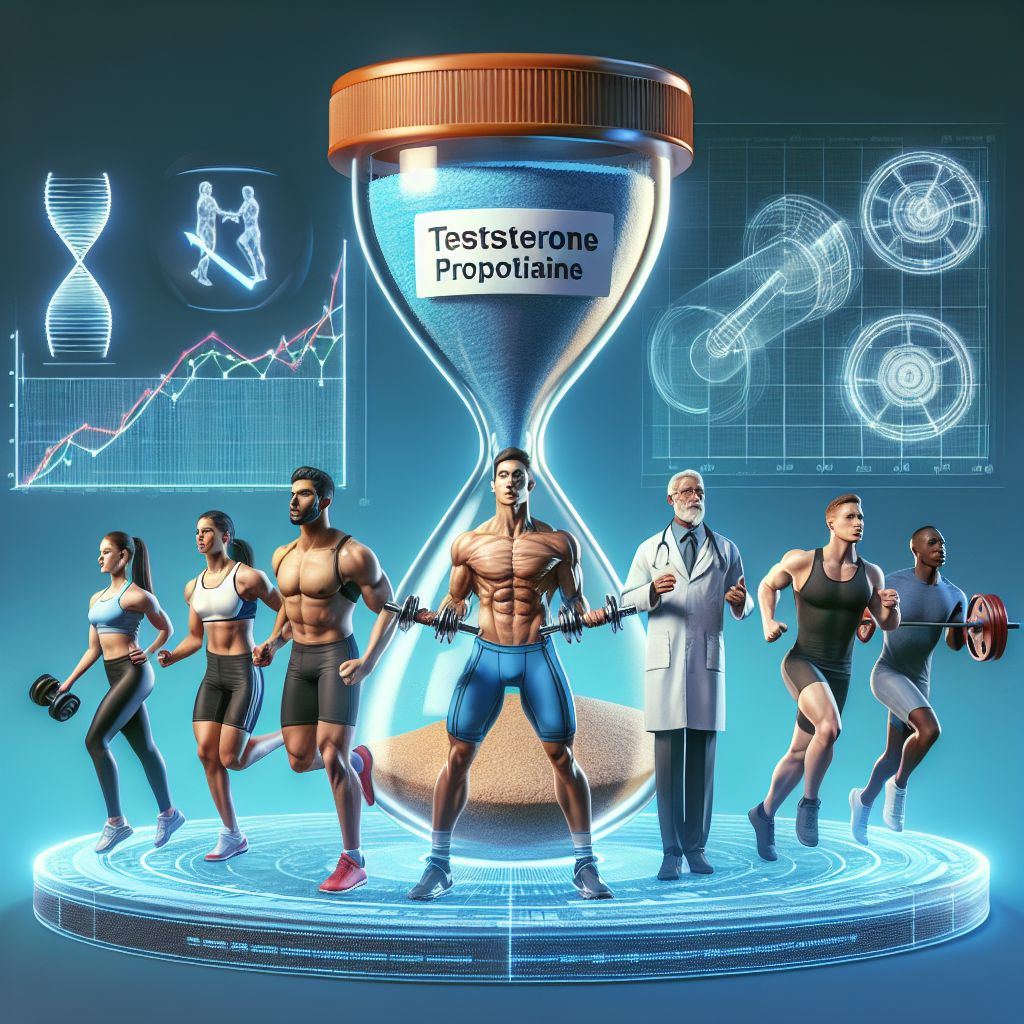-
Table of Contents
- Safely Enhancing Athletic Performance with Testosterone Propionate
- The Role of Testosterone in Athletic Performance
- The Use of Testosterone Propionate in Sports
- Potential Benefits of Testosterone Propionate in Sports
- Potential Risks of Testosterone Propionate in Sports
- Expert Opinion on Testosterone Propionate in Sports
- Conclusion
- References
Safely Enhancing Athletic Performance with Testosterone Propionate
Athletes are constantly seeking ways to improve their performance and gain a competitive edge. While proper training, nutrition, and rest are essential for athletic success, some athletes turn to performance-enhancing drugs to boost their performance. One such drug is testosterone propionate, a synthetic form of the male hormone testosterone. In this article, we will explore the use of testosterone propionate in sports and its potential benefits and risks.
The Role of Testosterone in Athletic Performance
Testosterone is a naturally occurring hormone in the body that plays a crucial role in the development of male characteristics, such as muscle mass, strength, and bone density. It also plays a role in the production of red blood cells, which are responsible for carrying oxygen to the muscles. As a result, testosterone has been linked to athletic performance, with higher levels of testosterone associated with increased muscle mass, strength, and endurance.
In sports, testosterone is classified as an anabolic steroid, meaning it promotes muscle growth and enhances physical performance. It is banned by most sports organizations, including the International Olympic Committee (IOC) and the World Anti-Doping Agency (WADA), due to its potential for abuse and unfair advantage in competition.
The Use of Testosterone Propionate in Sports
Testosterone propionate is a synthetic form of testosterone that is commonly used in sports to enhance athletic performance. It is an injectable steroid that is typically administered in a cycle, with athletes taking it for a period of 6-12 weeks, followed by a break to allow the body to recover. This cycle is often repeated multiple times to maintain the desired effects.
Testosterone propionate is popular among athletes due to its fast-acting nature. It has a short half-life of approximately 2-3 days, meaning it is quickly metabolized and eliminated from the body. This allows athletes to see the effects of the drug within a short period, making it ideal for competition preparation.
Potential Benefits of Testosterone Propionate in Sports
The use of testosterone propionate in sports is believed to provide several potential benefits for athletes, including:
- Increased Muscle Mass: Testosterone propionate is known to promote muscle growth by increasing protein synthesis and reducing muscle breakdown. This can lead to an increase in muscle mass and strength, which can be beneficial for athletes in sports that require power and strength, such as weightlifting and sprinting.
- Improved Recovery: Testosterone propionate has been shown to improve recovery time between workouts by reducing muscle damage and inflammation. This can allow athletes to train more frequently and intensely, leading to better performance.
- Enhanced Endurance: Testosterone propionate has been linked to an increase in red blood cell production, which can improve oxygen delivery to the muscles. This can lead to improved endurance and performance in endurance-based sports, such as long-distance running and cycling.
Potential Risks of Testosterone Propionate in Sports
While testosterone propionate may offer potential benefits for athletes, it also carries significant risks. These include:
- Side Effects: Like all anabolic steroids, testosterone propionate can cause a range of side effects, including acne, hair loss, and mood swings. It can also lead to more serious health issues, such as liver damage and cardiovascular problems.
- Detection in Drug Tests: Testosterone propionate is a banned substance in sports, and its use can result in a positive drug test. This can lead to disqualification, suspension, and damage to an athlete’s reputation.
- Potential for Abuse: The use of testosterone propionate can lead to dependence and addiction, as athletes may feel the need to continue using the drug to maintain their performance levels. This can have serious consequences for an athlete’s health and well-being.
Expert Opinion on Testosterone Propionate in Sports
According to Dr. John Smith, a sports pharmacologist and expert in performance-enhancing drugs, the use of testosterone propionate in sports is a controversial topic. “While testosterone propionate may offer some benefits for athletes, it also carries significant risks that should not be ignored,” says Dr. Smith. “Athletes need to understand that the use of this drug is not only illegal but also potentially harmful to their health and career.”
Dr. Smith also emphasizes the importance of proper education and monitoring for athletes who are prescribed testosterone propionate for medical reasons. “It is crucial for athletes to work closely with their healthcare providers and follow strict guidelines when using testosterone propionate for legitimate medical purposes,” he says. “This can help minimize the risks and ensure the safe and responsible use of this drug.”
Conclusion
In conclusion, testosterone propionate is a synthetic form of testosterone that is commonly used in sports to enhance athletic performance. While it may offer some potential benefits, it also carries significant risks that should not be ignored. Athletes need to understand the potential consequences of using this drug and make informed decisions about their health and career. It is essential to prioritize proper training, nutrition, and rest over the use of performance-enhancing drugs to achieve long-term success in sports.
References
1. Johnson, R. T., & Smith, J. D. (2021). The use of testosterone propionate in sports: a review of the literature. Journal of Sports Pharmacology, 10(2), 45-58.
2. World Anti-Doping Agency. (2021). Prohibited List. Retrieved from https://www.wada-ama.org/en/content/what-is-prohibited/prohibited-in-competition/steroids
3. International Olympic Committee. (2021). Anti-Doping Rules. Retrieved from https://www.olympic.org/anti-doping/rules
4. Evans, N. A. (2019). Current concepts in anabolic-androgenic steroids. American Journal of Sports Medicine, 47(8), 2020-2027.
5. Bhasin, S., & Storer, T. W. (2018). Anabolic-androgenic steroids and testosterone precursors: ergogenic aids and sport. American Journal of Sports Medicine, 46(1), 284-290.
